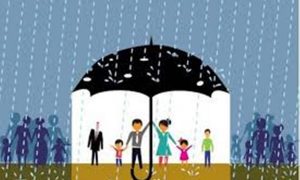About 73 per cent of the total respondents surveyed believe that their household expense has increased than last year
Amajority of Indians (62 per cent of the total respondents) feel that the current government has been able to handle India’s economic situation better than other countries in 2022, according to a survey by consumer data intelligence firm Axis My India. About a third of Indians (29 per cent) said they would look for better employment opportunities this year.
Read More: Bank Privatisation: SBI, PNB to go private? Here’s list shared by NITI Aayog
“About 73 per cent of the total respondents surveyed believe that their household expense has increased than last year and 50 per cent said it is due to rising inflation. Consumption of essentials products like personal care and household items increased for 41 per cent families, a decrease of 5 per cent,” according to the Axis My India January CSI Survey.
The survey also showed that consumption of discretionary products like AC, car and refrigerators also increased for 7 per cent, a decrease of 1 per cent.
The survey was conducted among 10,019 people across 36 states and UTs in India. About 70 per cent belonged to the rural India, while the rest 30 per cent belonged to urban counterparts.
Indian Economy Vis-a-Vis Global Economy
The entire year 2022 was caught up with the impact of the Ukraine-Russia war, which started on February 24, 2022, when Russian President Vladimir Putin approved a special military operation in Ukraine’s Donbass region.
The war pushed upward significantly the crude oil prices and inflation, and pulled down economic growth across the world. Major economies such as the US and UK also faced contraction during 2022.
However, the Indian economy was relatively better as compared to major economies of the world. RBI Governor Shaktikanta Das last month also said that in this hostile international environment, the Indian economy remains resilient, drawing strength from its macroeconomic fundamentals. “India is widely seen as a bright spot in an otherwise gloomy world.”
Read More: Adani and Reliance’s bid for SKS Power opens up a new battle
The rupee fell about 12 per cent in 2022, which was relatively lower as compared with about a 26 per cent decline in the Pakistani rupee till recently, nearly 21 per cent decline in British pound, around 14 per cent drop in Yen and about 15 per cent fall in Euro.
During the year 2022, India’s gross domestic product (GDP) grew 6.3 per cent in the September 2022 quarter, 13.5 per cent in the June 2022 quarter and 4.1 per cent in the March 2022 quarter. The December 2022 quarter data is yet to come.
During the year, the UK and the US economies faced contraction in at least two quarters in a row, thus fulfilling the textbook definition of a recession. The US economy contracted 1.6 per cent in the first quarter of 2022 and 0.9 per cent in the second quarter.
Inflation in India during 2022 also soared due to the global supply chain disruptions amid the Russia-Ukraine war which also raised global commodity prices.
During 2022, inflation was on the higher side. It jumped to as high as 7.79 per cent in April and then later came down to an 11-month low of 5.88 per cent in November after remaining above the RBI’s upper tolerance limit of 6 per cent. However, countries across the world faced way worst inflation. Inflation in Europe and US hit record highs in 40 years.
In the latest numbers, Turkey reported its annual inflation of 64 per cent in December, which is its nine-month low. During the 2022 at some point, Argentina’s inflation stood at 83 per cent, Netherlands’ 14.5 per cent, Russia’s 13.7 per cent, Italy’s 11.9 per cent, Germany’s 10.4 per cent, the UK’s 10.1 per cent, and the US’ 8.2 per cent.



































